Call Us Now! 678-928-4912

Tick Extermination
DeKalb County, GA
*$59 initial pest control service
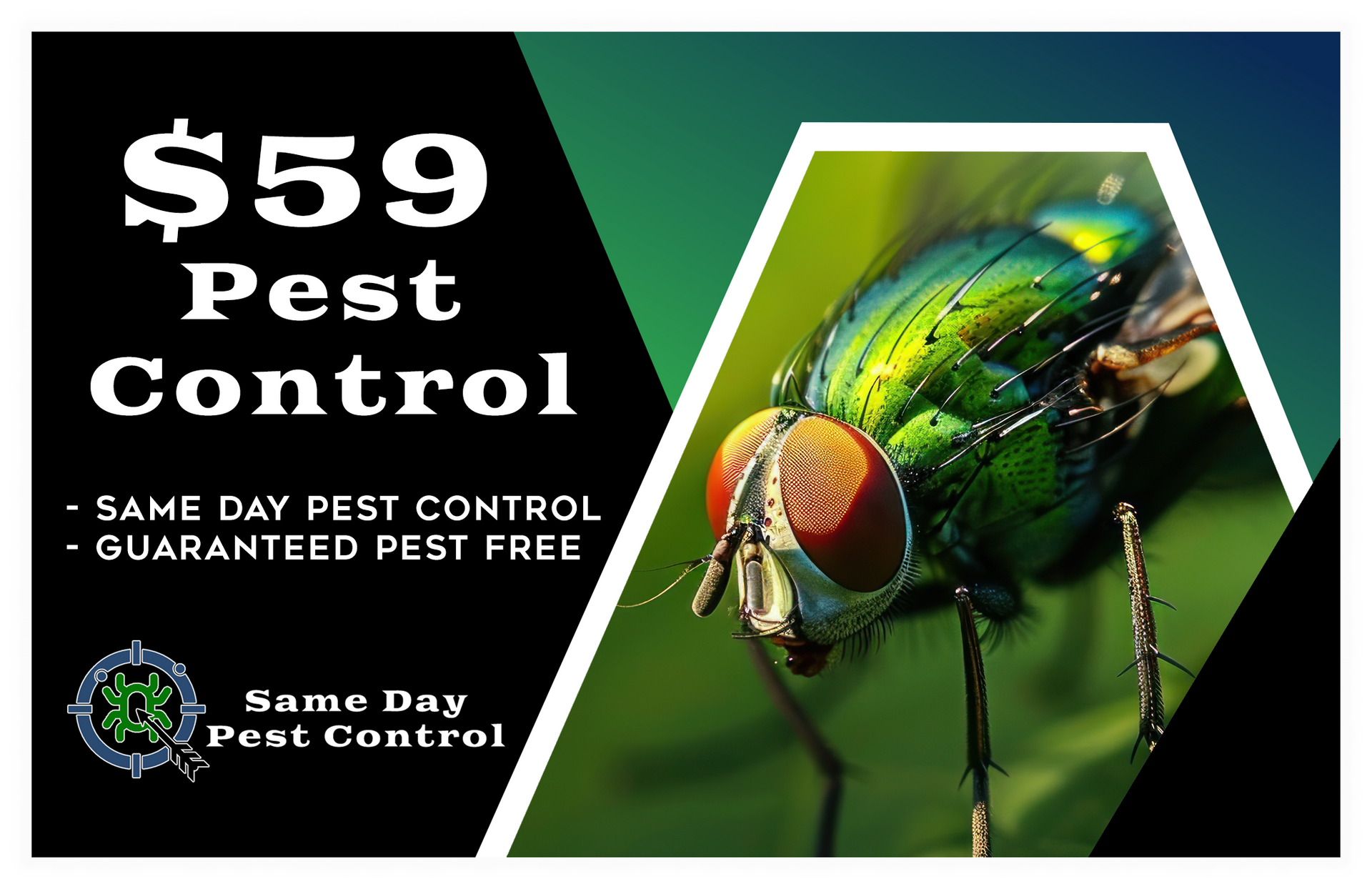
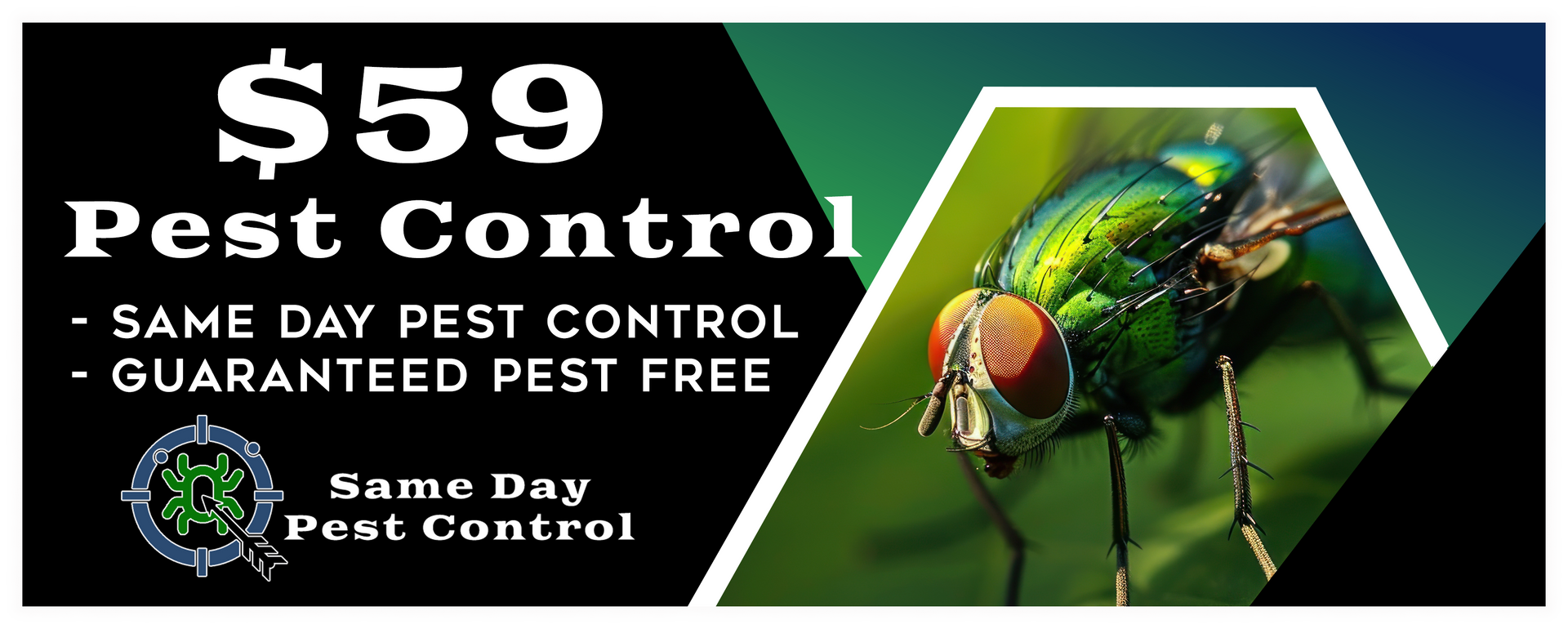
Tick Extermination
DeKalb County, GA
$59 Pest Control!*
*$59 initial pest control service


$59 Pest Control!
Call us Now 678-928-4912
Choose Us for Pest Control
- Satisfaction Guarantee
- Pet and Eco Friendly
- Award Winning Service
- Family Owned & Operated
- Call Before Noon for Same Day Service
- Free Re-treatment When Applicable
- Licensed, Bonded, Insured
Choose Us for Pest Control
- Satisfaction Guarantee
- Pet and Eco Friendly
- Award Winning Service
- Family Owned & Operated
- Call Before Noon for Same Day Service
- Free Re-treatment When Applicable
- Licensed, Bonded, Insured
Get Started Today!
Call us Now 678-928-4912
Tick Pest Control
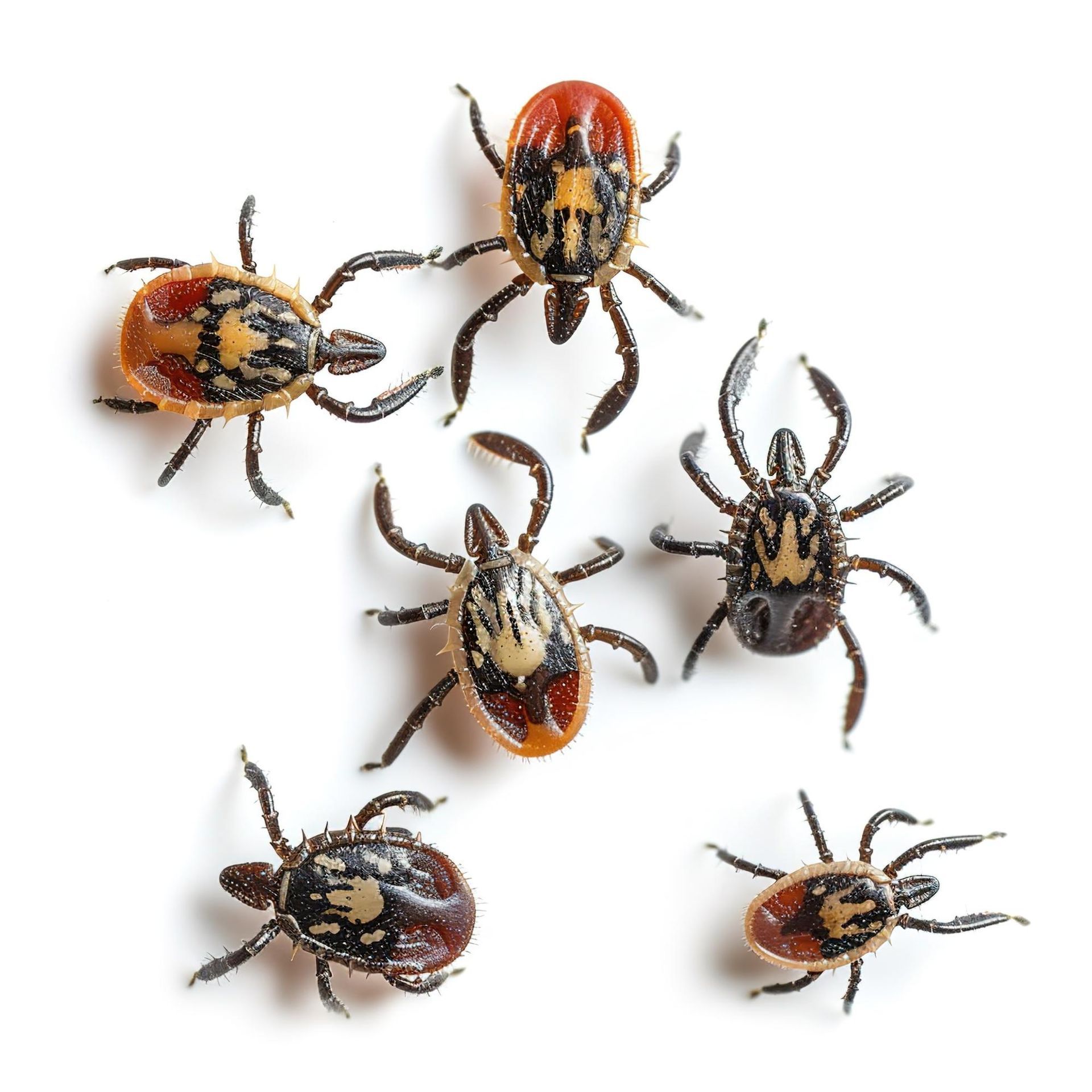
What Are Wood Ticks?
Wood ticks, also known as American dog ticks, are commonly found in wooded areas, grassy fields, and along trails. These parasites attach themselves to animals and humans to feed on blood. Recognizable by their reddish-brown color and eight legs, wood ticks are larger than other tick species. Female ticks can swell to the size of a small grape after feeding, while males remain smaller.
Tick Pest Control
What Are Wood Ticks?
Wood ticks, also known as American dog ticks, are commonly found in wooded areas, grassy fields, and along trails. These parasites attach themselves to animals and humans to feed on blood. Recognizable by their reddish-brown color and eight legs, wood ticks are larger than other tick species. Female ticks can swell to the size of a small grape after feeding, while males remain smaller.
Health Risks Associated with Wood Ticks
Wood ticks are more than just a nuisance—they can transmit serious diseases, including:
- Rocky Mountain Spotted Fever (RMSF) – A bacterial infection that can cause fever, rash, and other severe symptoms if left untreated.
- Tularemia – A rare bacterial infection that can lead to skin ulcers, fever, and swollen lymph nodes.
- Tick Paralysis – A condition caused by tick saliva, leading to muscle weakness and even temporary paralysis in severe cases.
How to Protect Yourself and Your Pets
To reduce the risk of tick bites and disease transmission, follow these precautions:
- Wear protective clothing – Long sleeves, pants, and light-colored clothing can help keep ticks off your skin and make them easier to spot.
- Use tick repellents – Apply insect repellent with DEET or permethrin when venturing into wooded or grassy areas.
- Perform regular tick checks – After outdoor activities, thoroughly inspect yourself, your family, and pets for ticks.
- Remove ticks promptly – If you find a tick attached to your skin, use fine-tipped tweezers to grasp it as close to the skin as possible and pull it out slowly. Clean the bite area with soap and water.

Need Help with Tick Control?
If wood ticks have become a problem on your property, professional pest control can help. Our tick prevention and treatment solutions are designed to keep your outdoor spaces safe for you, your family, and your pets.
Contact us today to schedule a tick control service and enjoy peace of mind while spending time outdoors!
Health Risks Associated with Wood Ticks
Wood ticks are more than just a nuisance—they can transmit serious diseases, including:
- Rocky Mountain Spotted Fever (RMSF) – A bacterial infection that can cause fever, rash, and other severe symptoms if left untreated.
- Tularemia – A rare bacterial infection that can lead to skin ulcers, fever, and swollen lymph nodes.
- Tick Paralysis – A condition caused by tick saliva, leading to muscle weakness and even temporary paralysis in severe cases.
How to Protect Yourself and Your Pets
To reduce the risk of tick bites and disease transmission, follow these precautions:
- Wear protective clothing – Long sleeves, pants, and light-colored clothing can help keep ticks off your skin and make them easier to spot.
- Use tick repellents – Apply insect repellent with DEET or permethrin when venturing into wooded or grassy areas.
- Perform regular tick checks – After outdoor activities, thoroughly inspect yourself, your family, and pets for ticks.
- Remove ticks promptly – If you find a tick attached to your skin, use fine-tipped tweezers to grasp it as close to the skin as possible and pull it out slowly. Clean the bite area with soap and water.
Need Help with Tick Control?
If wood ticks have become a problem on your property, professional pest control can help. Our tick prevention and treatment solutions are designed to keep your outdoor spaces safe for you, your family, and your pets.
Contact us today to schedule a tick control service and enjoy peace of mind while spending time outdoors!
What Do Ticks Eat?
Ticks are parasitic arachnids that survive by feeding on the blood of their hosts, which can include mammals, birds, reptiles, and amphibians. Using their sharp, specialized mouthparts, ticks pierce their host's skin to access blood, their sole source of nutrients.
The Tick Life Cycle and Feeding
Ticks have a multi-stage life cycle—egg, larva, nymph, and adult—each stage involving different feeding behaviors:
- Larvae: After hatching, tick larvae feed on small mammals or birds to obtain their first blood meal.
- Nymphs: As ticks grow, they move to larger hosts, such as deer or medium-sized mammals.
- Adults: Fully mature ticks often target larger mammals, including humans, dogs, and livestock. Adult ticks are the stage most associated with transmitting diseases to humans and pets.
Nutritional Needs of Ticks
Unlike other creatures that consume a variety of food, ticks rely entirely on blood for their sustenance. Blood provides all the nutrients they need for survival, growth, and reproduction. Remarkably, ticks can endure long periods without feeding—sometimes up to a year or more, depending on the species and life stage.
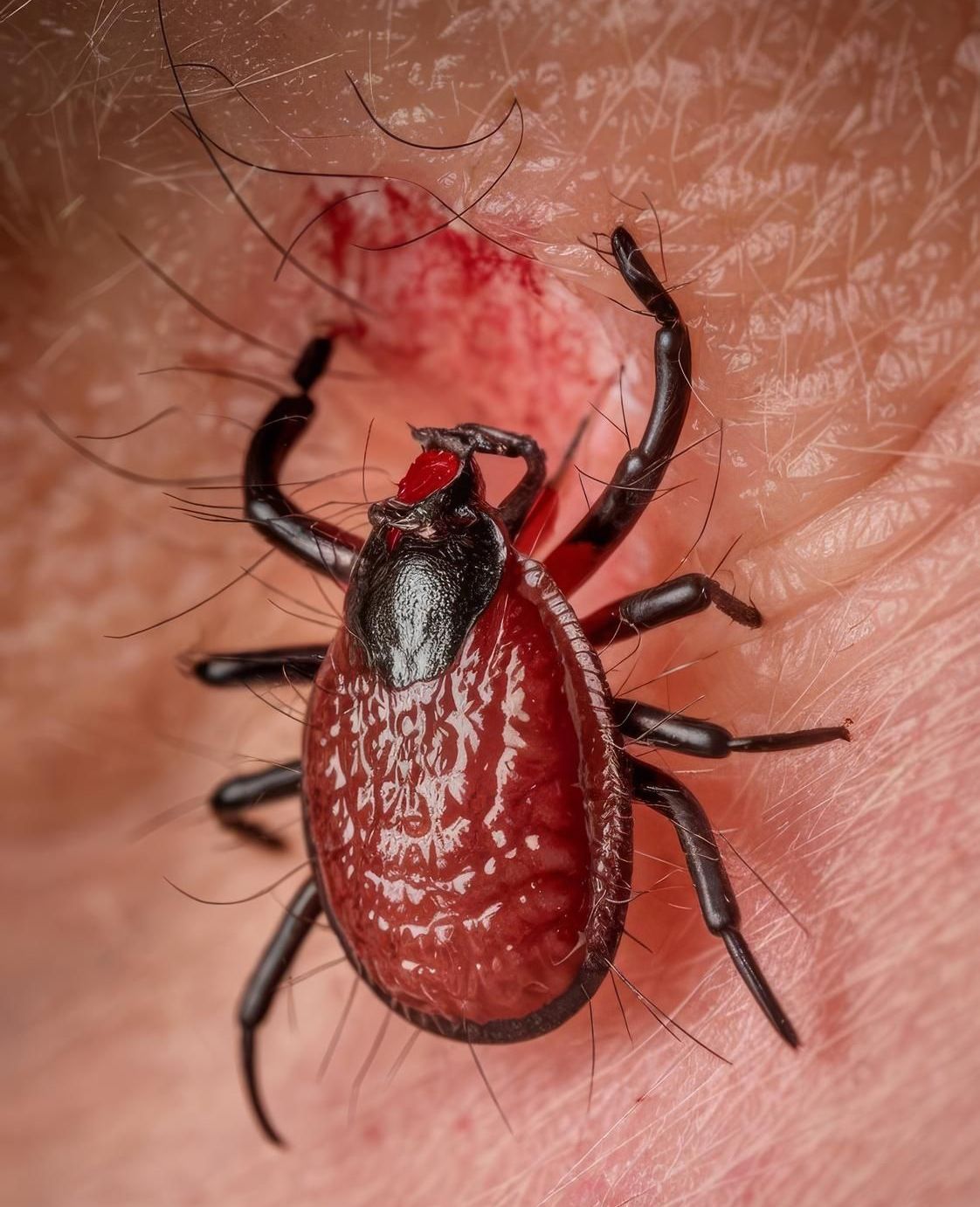
Health Risks Associated with Ticks
Ticks are not just parasitic pests; they can also transmit serious diseases, including:
- Lyme disease
- Rocky Mountain spotted fever
- Ehrlichiosis
These illnesses can have significant health impacts, making it crucial to avoid tick bites and address infestations promptly.

What Do Ticks Eat?
Ticks are parasitic arachnids that survive by feeding on the blood of their hosts, which can include mammals, birds, reptiles, and amphibians. Using their sharp, specialized mouthparts, ticks pierce their host's skin to access blood, their sole source of nutrients.
The Tick Life Cycle and Feeding
Ticks have a multi-stage life cycle—egg, larva, nymph, and adult—each stage involving different feeding behaviors:
- Larvae: After hatching, tick larvae feed on small mammals or birds to obtain their first blood meal.
- Nymphs: As ticks grow, they move to larger hosts, such as deer or medium-sized mammals.
- Adults: Fully mature ticks often target larger mammals, including humans, dogs, and livestock. Adult ticks are the stage most associated with transmitting diseases to humans and pets.
Nutritional Needs of Ticks
Unlike other creatures that consume a variety of food, ticks rely entirely on blood for their sustenance. Blood provides all the nutrients they need for survival, growth, and reproduction. Remarkably, ticks can endure long periods without feeding—sometimes up to a year or more, depending on the species and life stage.
Health Risks Associated with Ticks
Ticks are not just parasitic pests; they can also transmit serious diseases, including:
- Lyme disease
- Rocky Mountain spotted fever
- Ehrlichiosis
These illnesses can have significant health impacts, making it crucial to avoid tick bites and address infestations promptly.
How do I get rid of ticks?
Effective Steps to Get Rid of Ticks
Ticks are not only a nuisance but can also pose serious health risks. Here are practical steps to eliminate ticks and reduce the chances of bites:
1. Wear Protective Clothing
When venturing into areas where ticks are common, such as wooded or grassy locations, dress appropriately:
- Wear long sleeves and pants.
- Tuck your pants into your socks to prevent ticks from crawling up your legs.
2. Use Tick Repellents
Apply tick repellents to exposed skin and clothing. Look for products containing:
- DEET
- Picaridin
- Permethrin (ideal for treating clothing and gear).
These repellents can effectively keep ticks at bay.
3. Check for Ticks Regularly
After spending time outdoors, thoroughly inspect yourself, your children, and your pets. Focus on areas where ticks often hide, such as:
- Scalp
- Behind the ears
- Underarms
- Groin
4. Remove Ticks Safely
If you find a tick attached to your skin:
- Use fine-tipped tweezers to grasp the tick close to the skin's surface.
- Pull straight upward with steady pressure; avoid twisting or jerking to prevent leaving parts of the tick embedded in the skin.
- Clean the bite area with soap and water or an antiseptic.
5. Dispose of Ticks Properly
After removing a tick:
- Place it in a sealed container or flush it down the toilet.
- Avoid crushing it with your fingers, as this can expose you to potential pathogens.
6. Treat Your Yard and Pets
- Treat your yard with professional-grade insecticides.
- Use veterinarian-recommended tick prevention treatments for your pets.
Stay Alert for Tick-Borne Illnesses
Ticks can carry diseases such as Lyme disease and Rocky Mountain spotted fever. If you experience symptoms like fever, headache, or a rash after a tick bite, seek medical attention promptly.
Need Professional Tick Control?
For a safer, tick-free environment, contact us today. Our expert exterminators can treat your yard and help eliminate ticks, ensuring your home and outdoor spaces are protected. Call now to schedule a consultation!
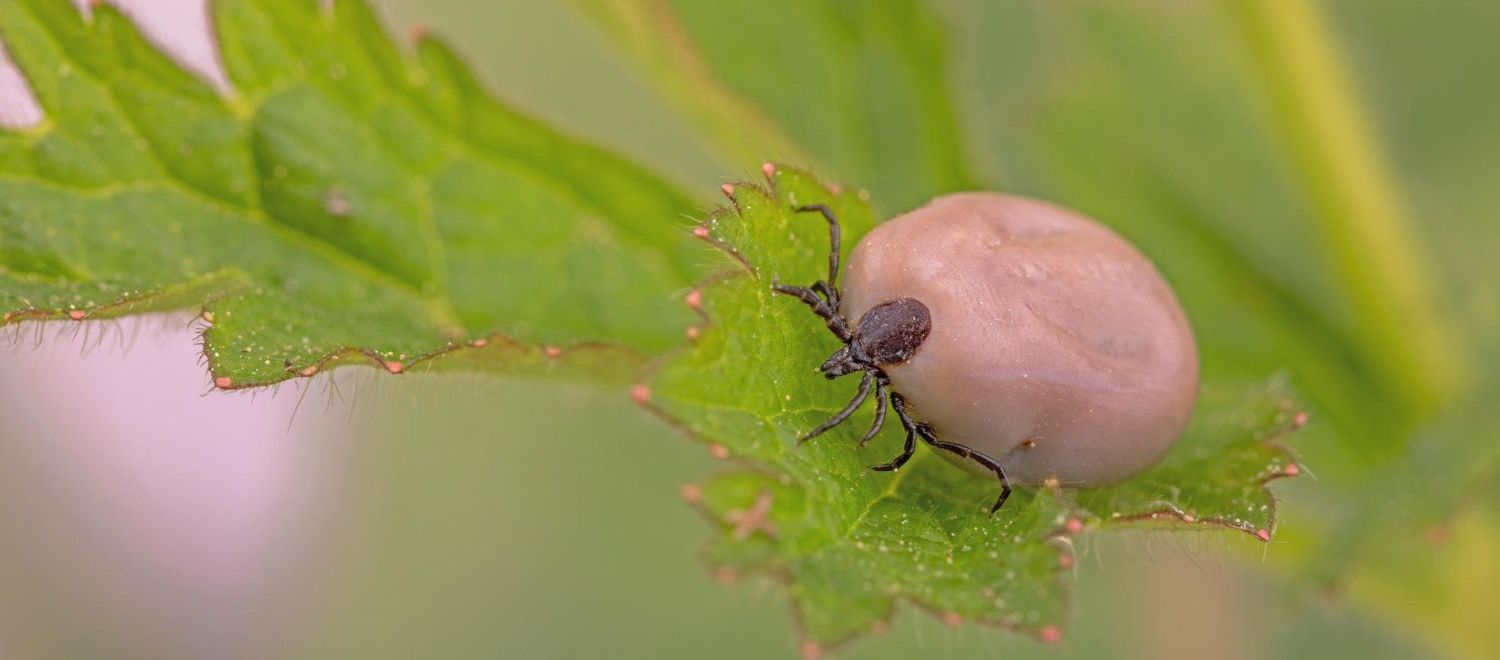
How do I get rid of ticks?
Effective Steps to Get Rid of Ticks
Ticks are not only a nuisance but can also pose serious health risks. Here are practical steps to eliminate ticks and reduce the chances of bites:
1. Wear Protective Clothing
When venturing into areas where ticks are common, such as wooded or grassy locations, dress appropriately:
- Wear long sleeves and pants.
- Tuck your pants into your socks to prevent ticks from crawling up your legs.
2. Use Tick Repellents
Apply tick repellents to exposed skin and clothing. Look for products containing:
- DEET
- Picaridin
- Permethrin (ideal for treating clothing and gear).
These repellents can effectively keep ticks at bay.
3. Check for Ticks Regularly
After spending time outdoors, thoroughly inspect yourself, your children, and your pets. Focus on areas where ticks often hide, such as:
- Scalp
- Behind the ears
- Underarms
- Groin
4. Remove Ticks Safely
If you find a tick attached to your skin:
- Use fine-tipped tweezers to grasp the tick close to the skin's surface.
- Pull straight upward with steady pressure; avoid twisting or jerking to prevent leaving parts of the tick embedded in the skin.
- Clean the bite area with soap and water or an antiseptic.
5. Dispose of Ticks Properly
After removing a tick:
- Place it in a sealed container or flush it down the toilet.
- Avoid crushing it with your fingers, as this can expose you to potential pathogens.
6. Treat Your Yard and Pets
- Treat your yard with professional-grade insecticides.
- Use veterinarian-recommended tick prevention treatments for your pets.
Stay Alert for Tick-Borne Illnesses
Ticks can carry diseases such as Lyme disease and Rocky Mountain spotted fever. If you experience symptoms like fever, headache, or a rash after a tick bite, seek medical attention promptly.
Need Professional Tick Control?
For a safer, tick-free environment, contact us today. Our expert exterminators can treat your yard and help eliminate ticks, ensuring your home and outdoor spaces are protected. Call now to schedule a consultation!

Get Started Today!
Call us Now 678-928-4912
Tick Exterminator near me
Serving DeKalb County, GA and Surrounding Areas

Decatur
Stone Mountain
Lithonia
Tucker
Clarkston
Avondale Estates
Chamblee
Doraville
Brookhaven
Dunwoody
Scottdale
Pine Lake
Stonecrest
North Druid Hills
North Decatur
Belvedere Park
Candler-McAfee
Panthersville
Redan
Druid Hills
Get Started Today!
Call us Now 678-928-4912
$59 Pest Control!
Call us Now 678-928-4912
